In the Media
News from CSEM

Medicaid, health insurance in general, should be more like car insurance
Imagine you’ve just purchased a new car and it’s time to buy insurance. Luckily, you have hundreds of car insurance companies to choose from.
The power of choice means being able to investigate different policy options, customer satisfaction ratings, financial stability, and policy rates. It also means that if you’re unhappy with your company, you can easily switch to another one, especially if they have an innovative technology solution, like a cool app that lowers costs and improves service.
Photo credit: CJ photo

What if Medicaid were run more like Target?
What if state Medicaid programs were run more like an innovative, customer-friendly corporation such as Target, Inc?
Indiana’s Medicaid program is doing just that, using some novel practices that have vastly improved how people transition from Medicaid to private-sector health insurance. What’s more, it delivers better health-care outcomes at a lower cost, with some important takeaway lessons for the state of North Carolina.
Target Shopping Carts Source: Jacob Emmons, Carolina Journal

Medicaid expanded NC health-care access. But this fix could make it run smoother.
Two years ago, many low-income households in North Carolina had an unsettling fear: getting a pay raise or a promotion. In some cases, it might trigger the sudden loss of health insurance for adult family members if they were on Medicaid. This scenario was termed a “benefits cliff.”
Medical image is Creative Commons via pexels.com.
Dr. Craig Richardson publishes article on the limits of SNAP benefits in alleviating food insecurity
Titled "Why Can't Food Stamps Be Used For a Rotisserie Chicken?" at EconLog, a widely read economics website, the article details that the government SNAP program, otherwise known as food stamps, prevents people from using them on healthy hot food, but allows purchase of birthday cakes and candy. Read more on the history and the effects on healthy living.

CSEM Director has article published in The New York Times on challenges facing minority/low income families in home financing
New York Times
Dr. Craig Richardson, along with his co-author Yuliya Panfil, had an op-ed published on Oct. 3rd, 2024 that highlighted how Dodd-Frank banking regulations have made it unprofitable to issue smaller mortgages that have traditionally helped Americans buy their first home and made it more difficult to buy fixer uppers. During Acting HUD Secretary Adrianne Todman's coincidental same-day campus visit, she met Dr. Richardson and noted she agreed with the article's premise and said some fixes are coming.
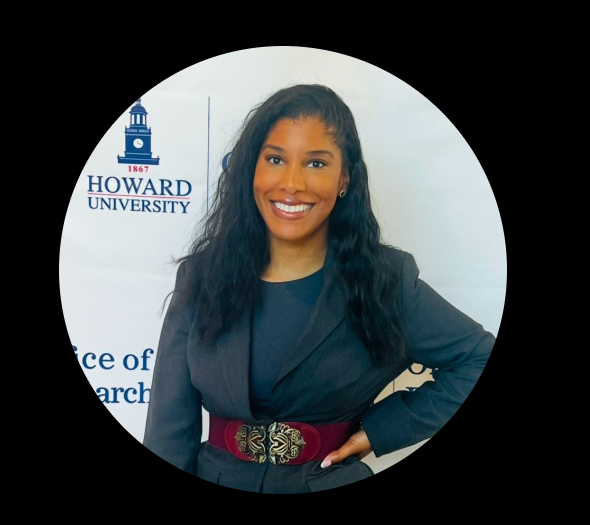
CSEM's innovative work on economic mobility profiled by national publication.
Medium, an online magazine that has a subscription base of over 1 million readers, had a recent article, "Bridging the Gap: How CSEM is Transforming Economic Mobility Through Data." Writer Isha Clayton, a graduate student at Howard University and entrepreneur, interviewed Dr. Richardson, noting that, "CSEM is at the frontline of tackling economic challenges through data-driven research and innovative initiatives." The article discussed CSEM's path-breaking data project with the City of Greensboro, its documentaries highlighting public transportation and affordable housing as well as its upcoming one on micro transit as a new means of public transportation, and how WSSU students have played a key role in CSEM's work. (Sept. 13, 2024).
Photo credit: Writer Isha Clayton, Medium magazine.

A Revolution in Public Transportation From A Town You Wouldn't Expect
American Institute for Economic Research
It’s taken more than a hundred years for low-density cities to recognize that public transportation works far better in a point-to-point model, using private-public partnerships.

Why “Disincentive Deserts” Matter Far More Than Benefits Cliffs
American Institute for Economic Research
Benefits cliffs certainly remain an important area of policy study, but we should pay more attention to creatively solving the problems of disincentive deserts, since they exist for such long and dispiriting spans of workers’ income journey, rolling back benefits at a rate that is equivalent to a 60–95% effective marginal tax rate.

CSEM and the Georgia Center for Opportunity partner with 3 op-eds and attend a 2025 D.C. national economic summit
The Georgia Center for Opportunity reached out in April 2025 to partner with CSEM on a series of three articles on health care hurdles facing those at the lower end of the economic ladder. CSEM Director Craig Richardson and GCO Research Director Erik Randolph co-authored the pieces, focusing on how many problems in health care are caused by transitions from Medicaid to the Affordable Care Act (ACA) Marketplace. Sudden drops in coverage and increased health insurance costs make it difficult to accept higher salaries in many cases.
As a result of the partnership, Dr. Richardson was invited by the GCO to a national conference in Washington, D.C. to meet with key Congressional representatives in the U.S. Capitol Building to share views on government policies that both help and hamper economic mobility. The Meant For More Summit II, sponsored by Alliance for Opportunity, was held Dec. 1-2, 2025 and is aimed at building pilot programs and welfare reforms that build forward economic momentum for families across the United States. CSEM's work on its social mobility calculator was also cited by a Federal Reserve official at the meeting.
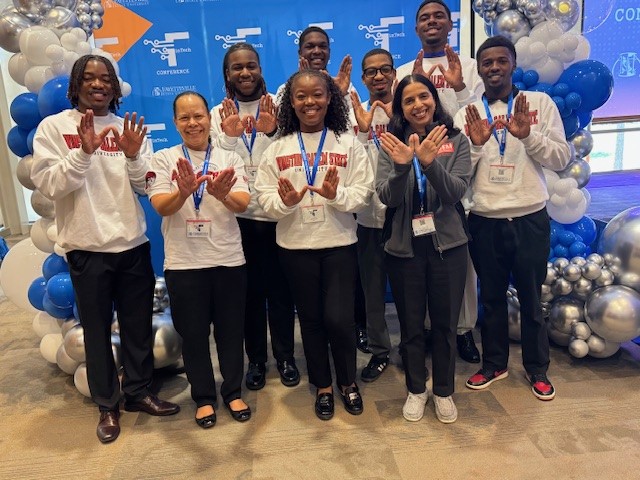
WSSU students and faculty enhance their understanding of AI in the industry
On October 30th-31st, 2025, seven WSSU students and two faculty members had rich and immersive experiences at a FinTech Conference hosted by Fayetteville State University on their campus . From early morning until late evening, the conference hosted concurrent panel sessions and individual speakers on topics that encompass every area of business. Students and faculty from more than 15 universities in and around NC were in attendance.
Some of the notable speakers were Ms. Traci Adedeji (2024 President and Chair of the Institutes CPCU Society), Dr. Jimmie Lenz (Executive Director, FinTech Master's Program, Duke University), Mr. Marques Ogden (Venture Capitalist, former NFL Player), Dr. Shirley Davis (President SDS Global Enterprise).
The Conference also hosted a panel discussion on the future of AI in NC. The key participants in the panel were NC lawmakers from Congress and Ms. Teena Piccione (Secretary and State Chief Information Officer, NC). During a meet and greet event on the night of 10/30/2025, the WSSU students got an opportunity to meet Ms. Piccione and impressed her with their "elevator" pitch speeches.
One of the students, Karyn Green said “I enjoyed the FinTech Conference. The information was relevant and made me feel more prepared as a young finance professional. My favorite session was the information about blockchain and digital currencies. This conference has motivated me to stay engaged on the developments of the FinTech industry as there are robust opportunities within it.” Professors Carol Cain and Aparna Gosavi served as co-leaders for the Conference with the assistance from CSEM and funding from the John William Pope Foundation.
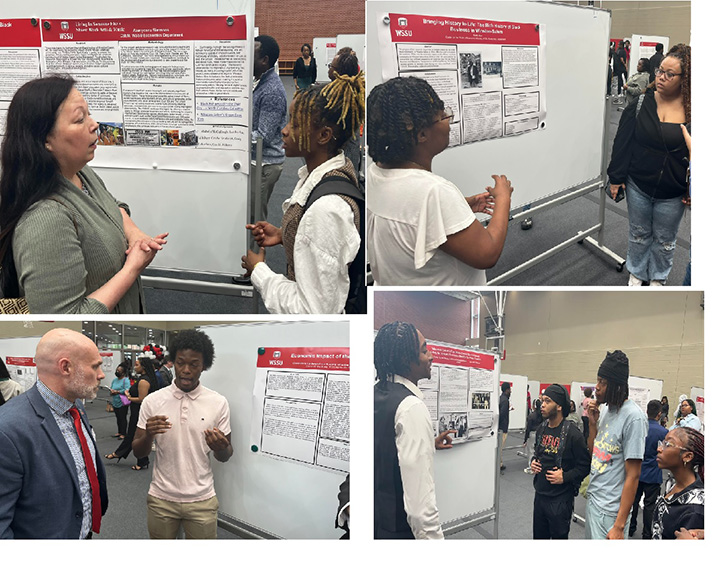
CSEM Student Research Fellows Showcase Work at WSSU Scholarship Day 2025
This past semester, Faith Kerr, Cah'lil Williams, Azeriyonna Simmons and Caridad Studivant have taken a deep dive into the little known history of the Black business district and neighborhoods that thrived from the 1910s to the 1950s. Each of them examined online resources and presented a poster during Scholarship Day 2025 on April 3rd. Their posters brought numerous interested students, faculty and administrators, where they told visitors about the marvel of Black-owned taxis (known as "jitneys" for their nickel cost to ride), the Black artists and musicians, and the important Black businesses such as a famous brickmaking company. (Sturdivant was unavailable due to ROTC commitments).
Christian White, on another project, has worked with a non-profit known as the "Do School", which assists members from low-wealth neighborhoods with trade skills and renovating homes so they may pursue new career paths. Dr. Madjd-Sadjadi has overseen this project. All CSEM student fellows are supported with funds through CSEM for their work on projects.
Pictured (upper left, clockwise): Prof. Cynthia Villagomez and Azeriyonna Simmons; Faith Kerr and student; Cah'lil Williams and students; Provost Mike McKenzie and Christian White.
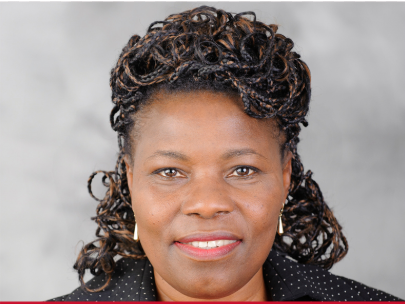
CSEM Scholar Dr. Alice Etim’s research on digital currencies holds promise for unbanked population
Dr. Alice Etim traveled to Florida in order to present a paper at Academy of Business Research (ABR) Conference, Florida Keys, Florida, held between October 29th-31st. The paper titled, “From CBDC to Cryptocurrencies Adoption: A Review of Bottom-Up Engagement and Sustainability,” focused on the Central Bank Digital Currency (CBDC) adoption and the pilot stages in selected countries. Her research examined the implications of these new forms of digital wallets, both from an international and domestic perspective. One vital insight of Dr. Etim's research is to promote digital currencies’ potential for improved economic inclusion of the unbanked population (those without bank accounts). This affects many low-income residents in Forsyth County, especially if they have families that live outside the U.S. Dr. Etim's work as a CSEM Research scholar continues to probe new and innovative ways to uplift economic mobility both here and abroad. Dr. Etim is Full Professor of Management Information Sciences (MIS) in the College of Business and Entrepreneurship and her past research and travel to this conference was supported through CSEM.
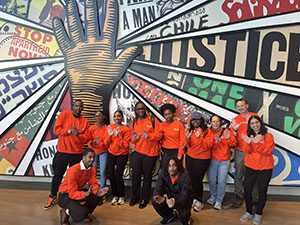
WSSU students and faculty build deep connections in Atlanta
From November 7th-9th, 2025 ten WSSU students and three faculty members had a rich and immersive experience called "Know Us," curated by the organization, Plant, Build and Restore. From the early morning until late evening, the group met successful Black entrepreneurs, bankers, artists, and social activists. The group had a chance to either ride e-bikes through the city to observe how new bike lanes have newly transformed the city, or visit with community gardeners and learn about healthy living.
About 40 participants came from around the country, with a mix of students, professors, and leaders of organizations.
Two WSSU students, Caridad Sturdivant and Cah'lil Williams, presented a project to the entire group on the Black business district of Winston-Salem.
Nolan Scott remarked, "Seeing and understanding Black history as an adult hit me differently—it made me realize how significant these stories really are."
Brooklyn Atch noted that "wealth is not just money."
Janet Campbell said, "I am inspired and motivated to return home and implement some of the ideas."
Pictured: (l to r, back row) Salis Fele, Caridad Strudivant, Aamiyah Ellerbe, Nolan Scott, Kaci Wyatt, Brooklyn Atch, Dr. Carol Cain, Dr. Craig Richardson, Dr. Aparna Gosavi.
(l to r, front row): Ciel Miller, Cah'lil Williams. Not pictured: Janet Campbell and Anthony Green.

